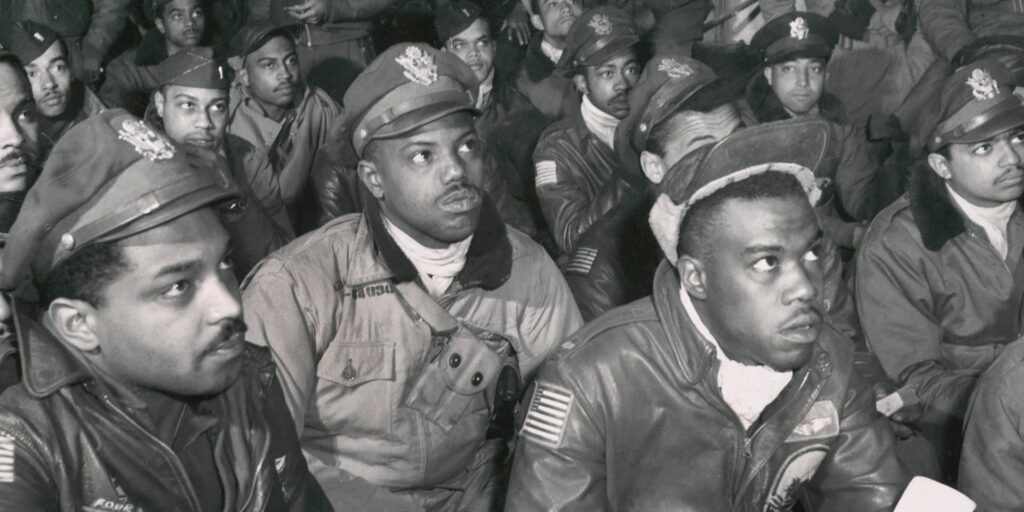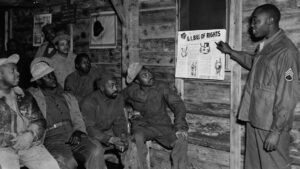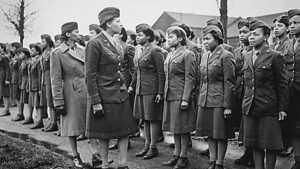Articles

How the GI Bill’s Promise Was Denied to a Million Black WWII Veterans
The sweeping bill promised prosperity to veterans. So why didn’t Black Americans benefit?
When Eugene Burnett saw the neat tract houses of Levittown, New York, he knew he wanted to buy one. It was 1949, and he was ready to settle down in a larger home with his family. The newly established Long Island suburb seemed like the perfect place to begin their postwar life—one that, he hoped, would be improved with the help of the GI Bill, a piece of sweeping legislation aimed at helping World War II veterans like Burnett prosper after the war.
But when he spoke with a salesman about buying the house using a GI Bill-guaranteed mortgage, the door to suburban life in Levittown slammed firmly in his face. The suburb wasn’t open to Black residents.
“It was as though it wasn’t real,” Burnett’s wife, Bernice, recalled. “Look at this house! Can you imagine having this? And then for them to tell me because of the color of my skin that I can’t be part of it?”
The Burnetts weren’t the only Black Americans for whom the promise of the GI Bill turned out to be an illusion. Though the bill helped white Americans prosper and accumulate wealth in the postwar years, it didn’t deliver on that promise for veterans of color. In fact, the wide disparity in the bill’s implementation ended up helping drive growing gaps in wealth, education and civil rights between white and Black Americans.
While the GI Bill’s language did not specifically exclude African-American veterans from its benefits, it was structured in a way that ultimately shut doors for the 1.2 million Black veterans who had bravely served their country during World War II, in segregated ranks.
By: Erin Blakemore
Date : June 21, 2019
Source: History.com
Releated Posts

The GI Bill’s Effect on Black Veterans
From the start, Black veterans had trouble securing the GI Bill’s benefits. Some could not access benefits because they had not been given…

WWII forces got their mail
An army unit known as the “Six Triple Eight” had a specific mission in World War II: to sort and clear a two-year backlog of mail for Americans stationed…

The Tragic, forgotten history of black military soldiers
In the week after the election, the Equal Justice Initiative, of Montgomery, Alabama, released a new report—a fifty-three-page addendum to last year’s “Lynching in America,” an unprecedentedly…


